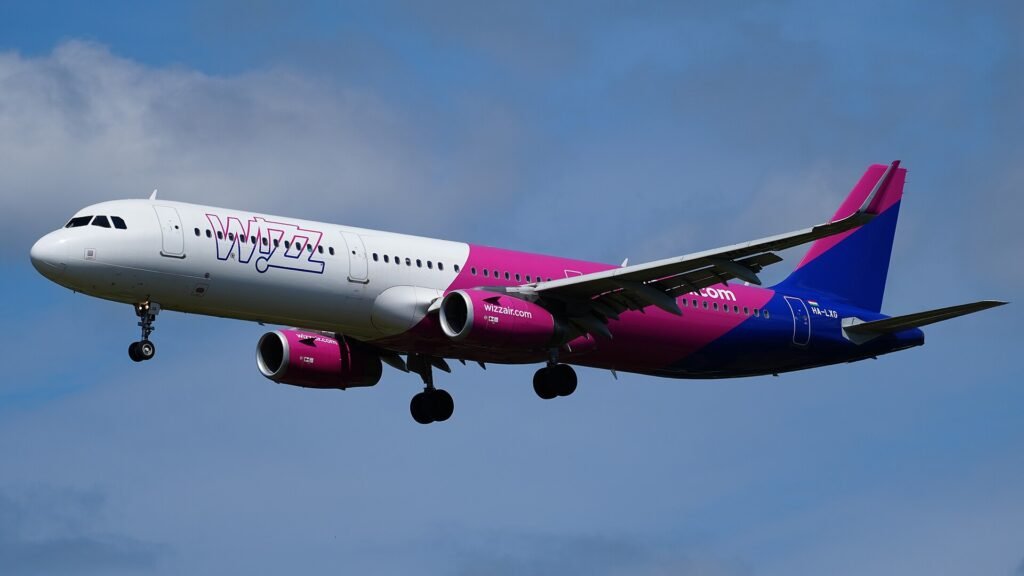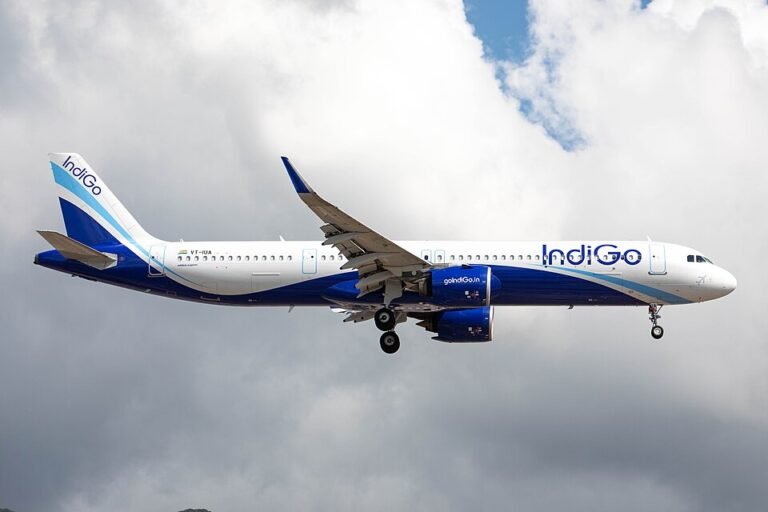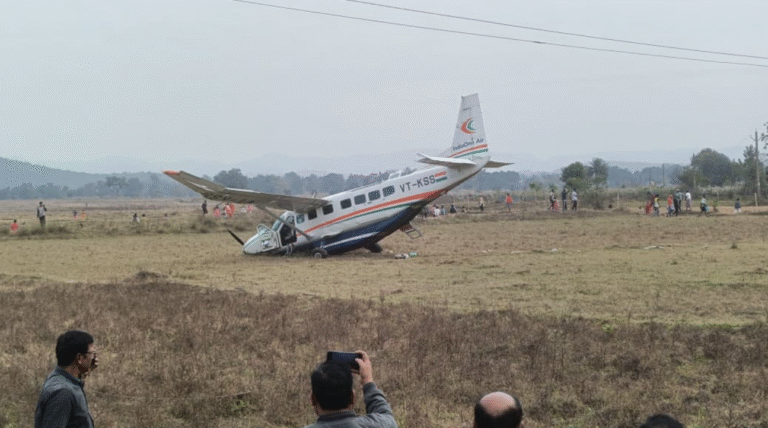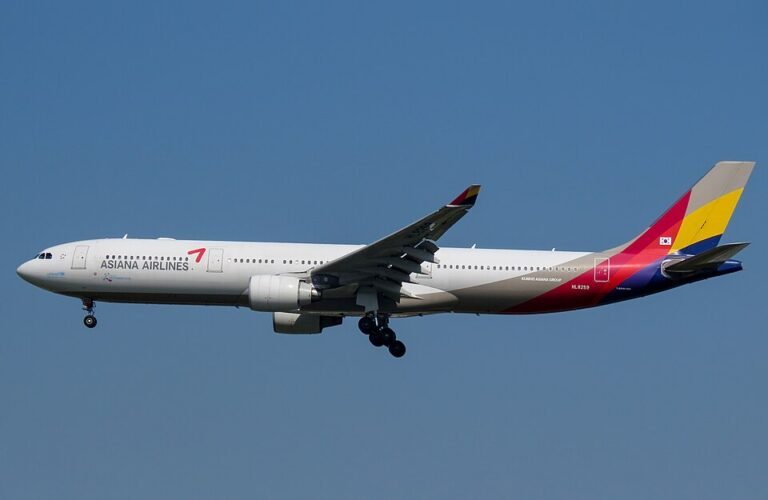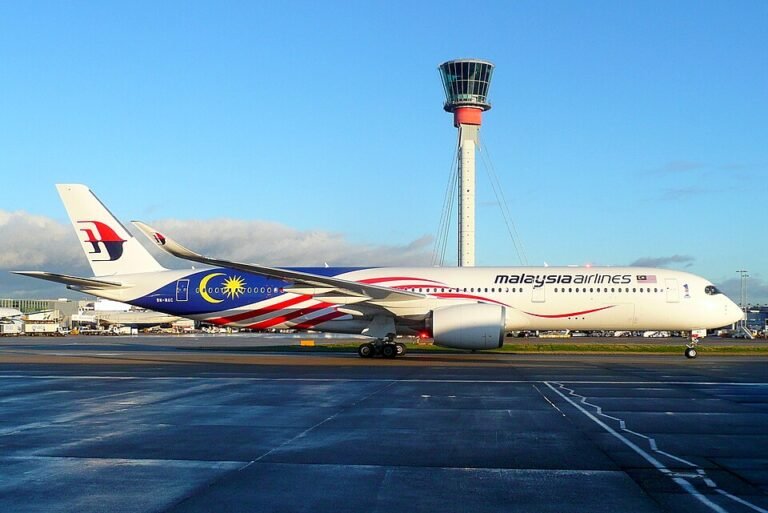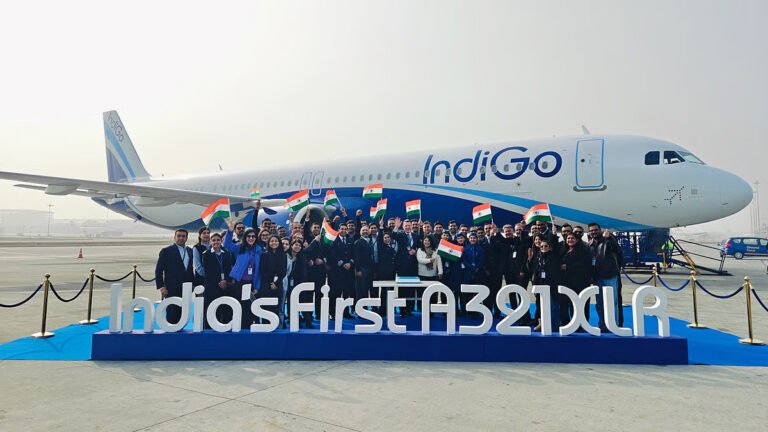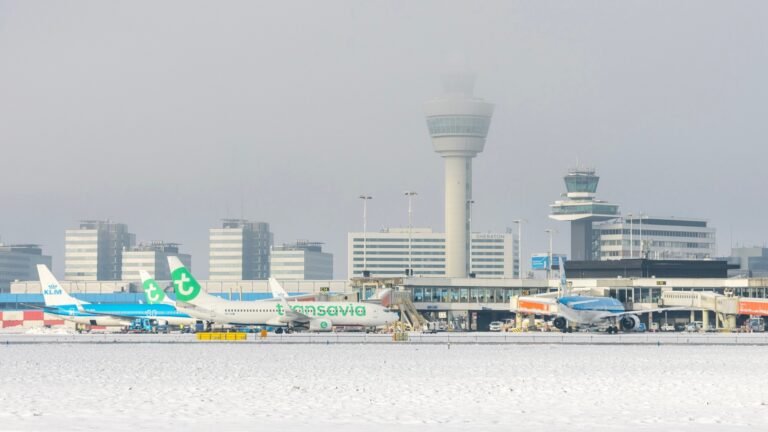Picture Credits: MarcelX42, Wikimedia
Bucharest, ROMANIA: Wizz Air’s legal troubles have accumulated over the years as European courts continue to side with employees and unions in a series of labor rights disputes dating back more than a decade. In one of the most recent rulings, a Romanian court decided that Wizz Air’s COVID-era layoffs violated collective dismissal rules and discriminated against certain employees. Similarly, a 2019 decision by Romania’s Supreme Court confirmed that Wizz Air’s 2014 dismissal of 19 Romanian employees shortly after they formed a union was both illegal and discriminatory. These cases underscore long-standing accusations of union-busting tactics by the airline and paint a broader picture of systemic anti-union behavior by the ultra-low-cost carrier.
The 2020 “Bad Apples” Scandal
In 2020, during the early months of the COVID-19 pandemic, Wizz Air laid off around 1,000 pilots and cabin crew. Initially, the company attributed these layoffs to financial pressures caused by the global health crisis. However, a leaked audio recording soon revealed a far more troubling rationale. In the recording, then Head of Flight Operations Darwin Triggs instructed managers to compile a list of employees to be dismissed, prioritizing those who had taken sick leave or were otherwise seen as difficult. He labeled these individuals as “bad apples.”
The backlash was swift. Critics accused Wizz Air of punishing employees for exercising their legal rights, such as calling in sick or raising concerns. An internal investigation was launched, and by April 2021, Triggs had resigned. Although the recording could not be used as legal evidence, it painted a damning picture of the airline’s internal decision-making and added weight to long-standing accusations of labor rights abuses.
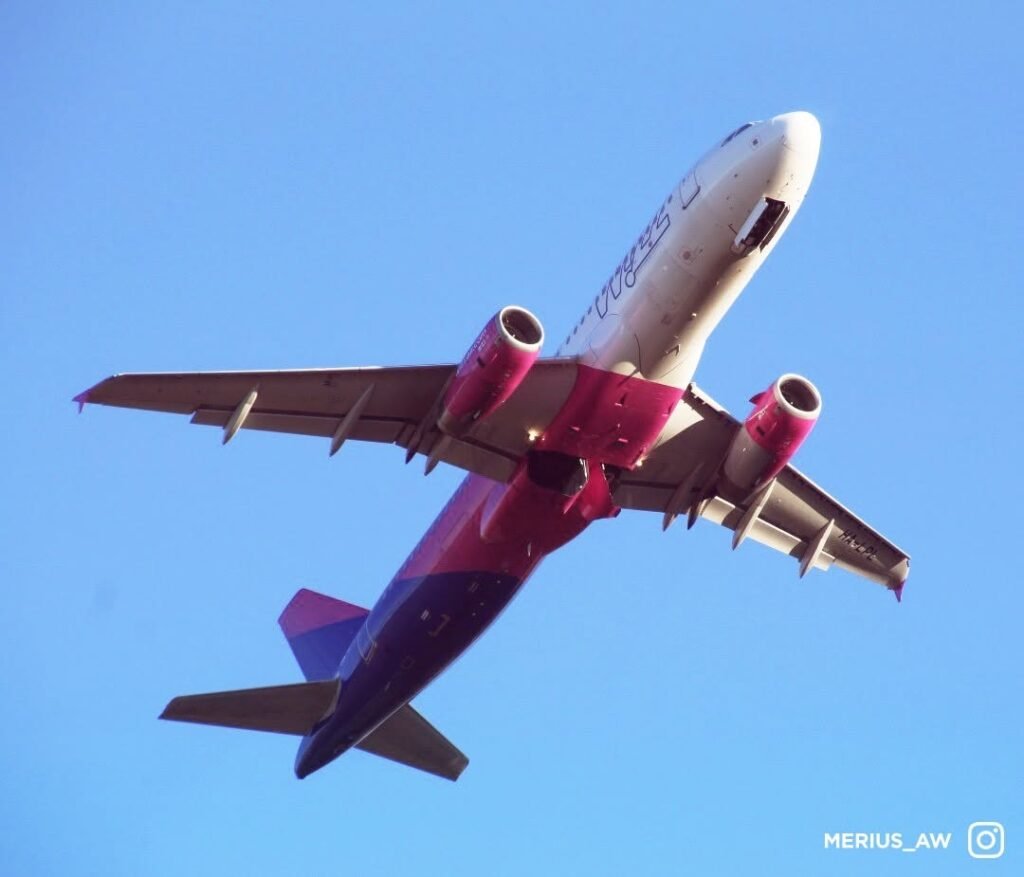
Picture Credits: Merius_aw, Instagram
Court Victories and Union Pushback
In response to these dismissals, several former Wizz Air pilots filed lawsuits with the support of FPU Romania, a local union representing pilots and cabin crew. In April 2021, a Romanian court ruled that Wizz Air had violated collective dismissal procedures and ordered the reinstatement of four pilots and ten cabin crew members. The court found that the airline had failed to follow proper labor laws during the layoffs. Separately, in July 2022, the Romanian Anti-Discrimination Council fined Wizz Air for discriminating against Italian pilots based in Romania, citing the disproportionate impact of the layoffs on foreign staff and the lack of transparent criteria.
“This ruling is not just a win for the affected pilots, it’s a win for every worker who’s been intimidated or dismissed for standing up for their rights,” said Mircea Constantin, Secretary General of FPU Romania. The union, which has supported dozens of employees through legal battles, hailed these decisions as a turning point in its fight against what it calls “modern-day aviation slavery.”
Although Wizz Air appealed the 2021 ruling, the case remains pending before Romania’s Supreme Court. The airline’s legal issues, however, extend far beyond Romania.
A Pattern of Union Suppression
Since 2014, Wizz Air has repeatedly been accused of targeting unionized staff. In that year, 19 Romanian workers were fired shortly after they formed a union, prompting a years-long legal fight that culminated in a 2019 Supreme Court ruling against the airline. In 2020, the company dismissed four union leaders in Ukraine. In 2021, Wizz Air informed Italian authorities that it would operate in Italy without engaging with unions, a move widely condemned by labor groups.
In Norway, the airline’s refusal to enter collective bargaining agreements sparked boycotts and political backlash, which eventually forced Wizz Air to exit the market altogether. Meanwhile, determined unions like FPU Romania have continued to challenge the company in court, winning cases related to unfair dismissals, unpaid leave, and unsafe working conditions.
Legal Losses Across Europe
Wizz Air has faced legal defeats in several European countries. In Bulgaria, courts ruled in favor of employees in matters such as contract legality and vacation pay. In Hungary, legal proceedings are ongoing, accusing the airline of miscalculating paid leave for over 15 years.
One notable case involves a flight attendant who was dismissed after reporting toxic fumes onboard. FPU Romania is also defending itself in Budapest against a lawsuit filed by Wizz Air for alleged copyright infringement. The airline lost the case and was ordered to pay legal costs.
“No pilot or cabin crew member starts a job thinking they’ll one day have to fight their employer in court,” said FPU Romania’s legal team, Costel Gîlcă and Bianca Mircea. “But when a company like Wizz Air refuses to sit down with its employees and negotiate collectively, legal action becomes the only path to justice.”
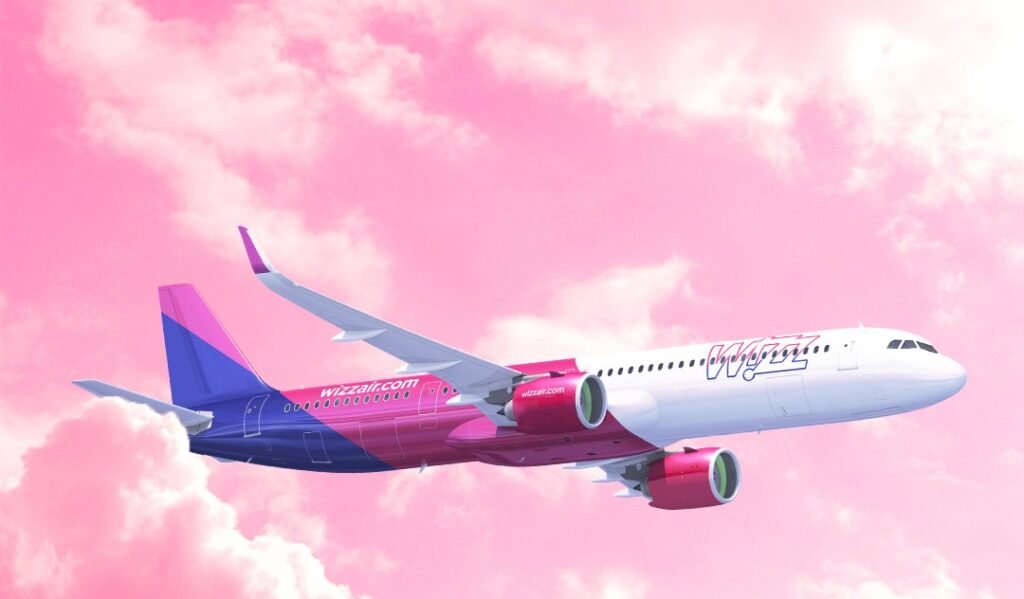
Picture Credits: Wizz Air
Delayed Justice, Small Penalties
Though courts have repeatedly ruled against Wizz Air, the company often appeals, dragging these cases out for years. Critics argue that this strategy is designed to exhaust plaintiffs and avoid accountability.
“By the time an employee wins in court, they’ve often already moved on to another job,” said Mircea Constantin. “The legal process is slow, and for a company of Wizz Air’s size, the fines are negligible. But we will continue to fight back. And in some cases, the court decisions have already led to significant improvements in crew pay and contracts.”
Financial and Reputational Consequences
In 2022, Denmark’s AkademikerPension fund divested from Wizz Air, citing labor rights violations. The $23 billion pension fund joined 14 other investors in demanding that the airline allow employees to unionize freely. The company also scored poorly in a 2024 pilot survey of 50 European airlines, ranking 44th and earning the label “Social Misfit.”
“It is still unbelievable that in 2024, in Europe, you get threatened by your CEO if you want to get into unions,” said an anonymous pilot who participated in the survey. “Authorities should dig more into Wizz Air and finally put an end to modern-day aviation slavery.”
Current Outlook and What’s Next
As of 2025, Wizz Air remains embroiled in legal and reputational turmoil stemming from its past labor practices. While the airline continues to expand routes and maintain strong financial performance, it faces ongoing scrutiny from European courts, unions, and human rights advocates. The pending appeal before Romania’s Supreme Court could mark its fourth major legal defeat in the country. Meanwhile, labor organizations are urging EU regulators to take a closer look at systemic violations, including unsafe work pressures like “Captain’s Discretion” abuse and retaliation against whistleblowers.
Adding to its challenges, Wizz Air has recently come under fire for allegedly blocking former employees from being rehired through partner companies—an unofficial blacklisting practice that labor advocates claim is aimed at silencing dissent. Furthermore, the airline’s safety culture has drawn concern, with reports of operational decisions allegedly compromising flight crew rest and safety protocols.
Despite the mounting pressure, Wizz Air has yet to publicly acknowledge any need for policy reform or reconciliation with labor groups. Whether these legal defeats will eventually force the company to overhaul its labor practices remains to be seen.
Stay tuned to Aviation Today for more such news!

